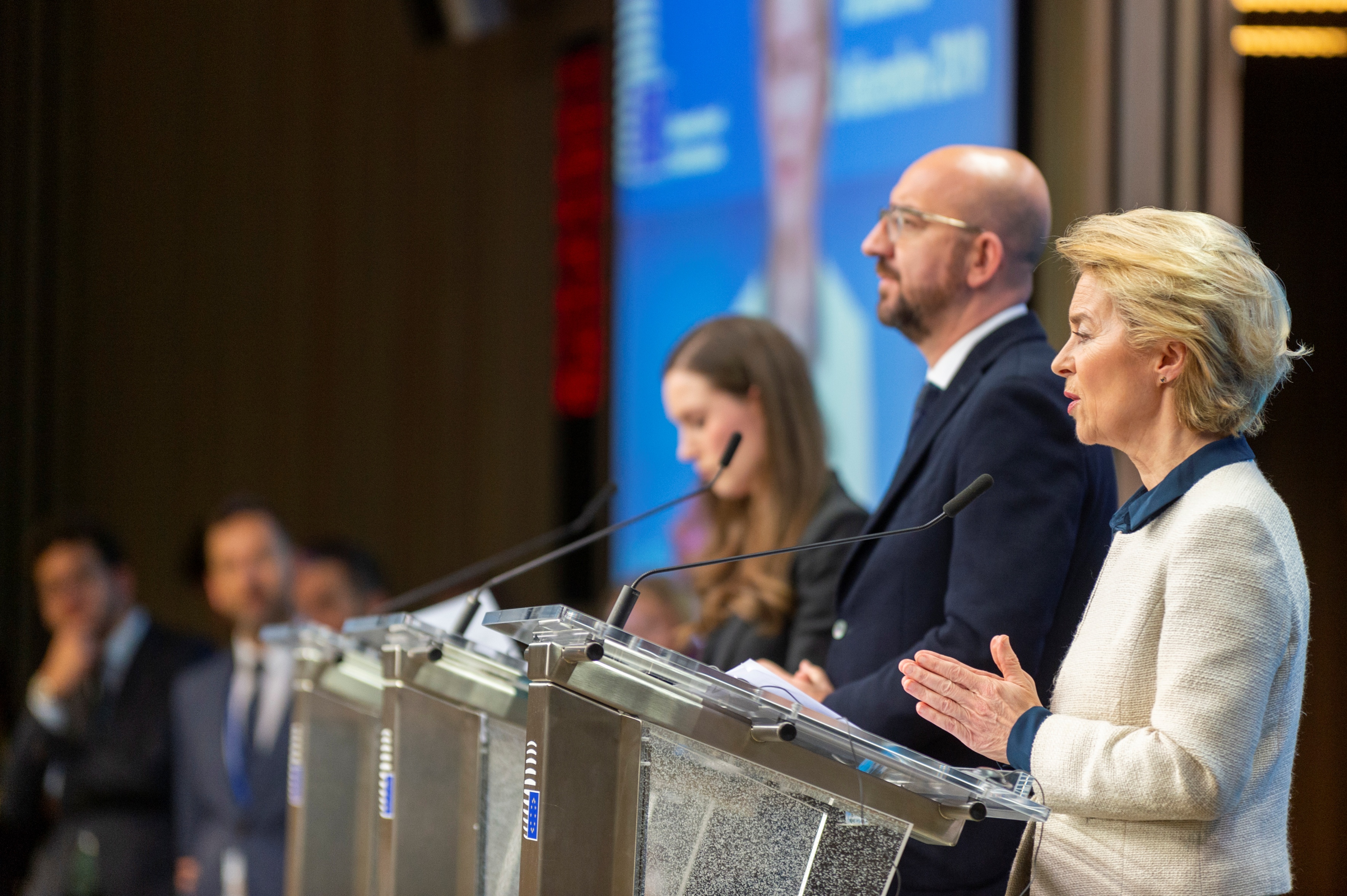LOC12:24
09:24 GMT
 Thorny Brexit finally passes British parliament
Thorny Brexit finally passes British parliament
KUWAIT, Dec 30 (KUNA) -- Brexit caused political uncertainty in Britain in 2019 with the country's parliament finally voting in favor of leaving the European Union (EU) by next month.
Following are major events related to Brexit in 2019.
Jan. 10: The UK Parliament voted on an amendment that forces Prime Minister Theresa May to announce within three days the alternative steps she will take if the parliament rejects the Brexit deal.
Jan. 17: Prime Minister May called on the members of parliament for dialogue and to put differences and personal interests aside until the Brexit is done.
Jan. 23: The Japanese electronics corporation (Sony) announced the relocation of its headquarters from London to Amsterdam because of Brexit.
Jan. 30: The UK Parliament supported the prime minister's efforts aimed at amending the Brexit deal, especially the border arrangements between Northern Ireland and Ireland.
Feb. 3: Japanese Motor Company (Nissan) has announced the cancellation of its X-Trail vehicle-manufacturing plan at its North East British factory due to the Brexit.
March 12: Prime Minister May announced success in making legally binding changes on the Brexit deal.
March 13: The UK Parliament voted for a second time against May's Brexit plan with 391 votes to 242 votes.
March 14: The UK Parliament has approved a government proposal to postpone the Brexit until March 29.
March 20: Prime Minister May has officially asked the European Union to postpone the Brexit date for three months.
March 22: The European Union agreed to postpone the Brexit date until May 22.
March 24: Mass demonstrations in central London called for a new Brexit referendum.
March 27: Prime Minister May has promised her party' members to give up her post if they support the Brexit deal.
March 29: The UK Parliament voted against the Brexit deal for a third time with 344 votes to 286.
April 2: The UK Parliament failed to agree on alternatives to the Brexit plan proposed by the government.
April 3: UK MPs supported a motion that would force Prime Minister Theresa May to pass legislation preventing Brexit without an agreement.
April 5: British Prime Minister has submitted a request to the European Union to postpone Brexit until June 30.
April 11: The European Union has agreed to extend the Brexit deadline until October 31.
May 17: British Labor Party leader Jeremy Corinne announced the failure of talks between the government and his party over Brexit plan.
May 23: British Commons Leader Andrea Leadsom resigned in protest over Prime Minister Theresa May's Brexit plan.
May 27: The new Brexit party led the results of the European Parliament elections in Britain.
June 7: British Prime Minister May officially stepped down as leader of Britain's ruling Conservative Party after failing to present a Brexit plan.
Oct. 4: British Prime Minister Boris Johnson presents documents to the Court of Scotland proving his intention to request the postponement of his country's exit from the European Union if he does not reach an agreement within two weeks.
Oct. 14: Queen Elizabeth II delivers a speech at the Parliament includes a presentation of the government's work program, which includes 22 legislation on immigration, health, the environment and others for the post-Brexit era.
Oct. 17: The European Union approves at its summit in Brussels a new agreement with Britain regarding its withdrawal from the European Union states that the United Kingdom will leave it on October 31.
Oct. 19: The British Prime Minister sends a request to the European Union to extend the term of his country's exit from the Union for a period of three months.
Oct. 19: Tens of thousands of protesters gathers in London, calling for second inquiries on the Brexit project.
Oct. 20: The British Parliament vote in favor of an amendment that excludes exit from the European Union scheduled for October 31 with no agreement reached until implementing legislation is completed.
Oct. 29: The British House of Commons stands by 438 votes in favor, against 20 on the proposal to hold parliamentary elections on December 12.
Dec. 13: Conservatives, led by Prime Minister Boris Johnson, won the elections, and Johnson said this victory would give him a mandate to leave the EU by mid-January.
Dec. 14: Premier Nicola Sturgeon demands Boris Johnson transfer powers to Scotland for second referendum.
Dec. 20: The House of Commons voted in favor of Johnson's bill to leave the EU by end of January 2020. (end)
eng